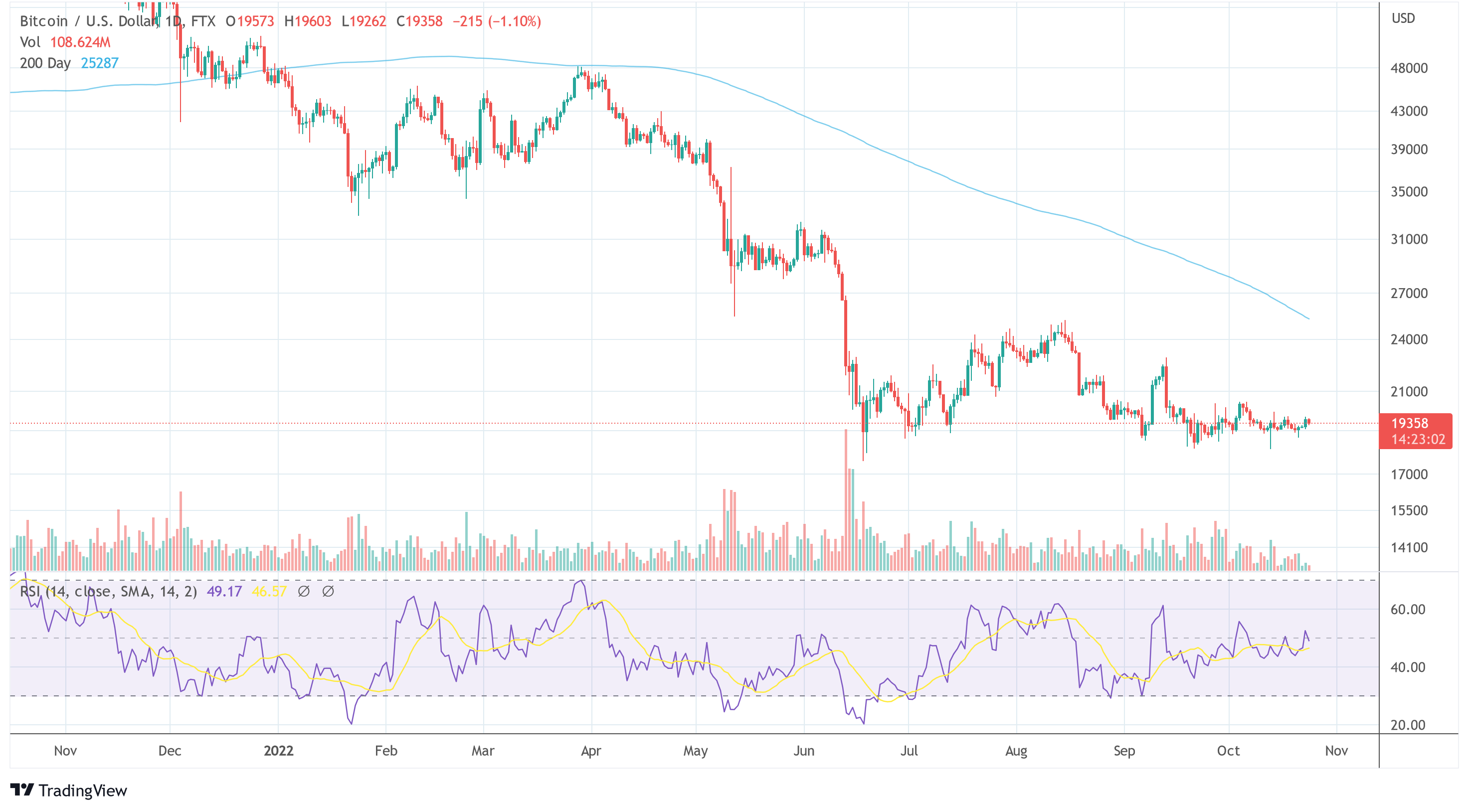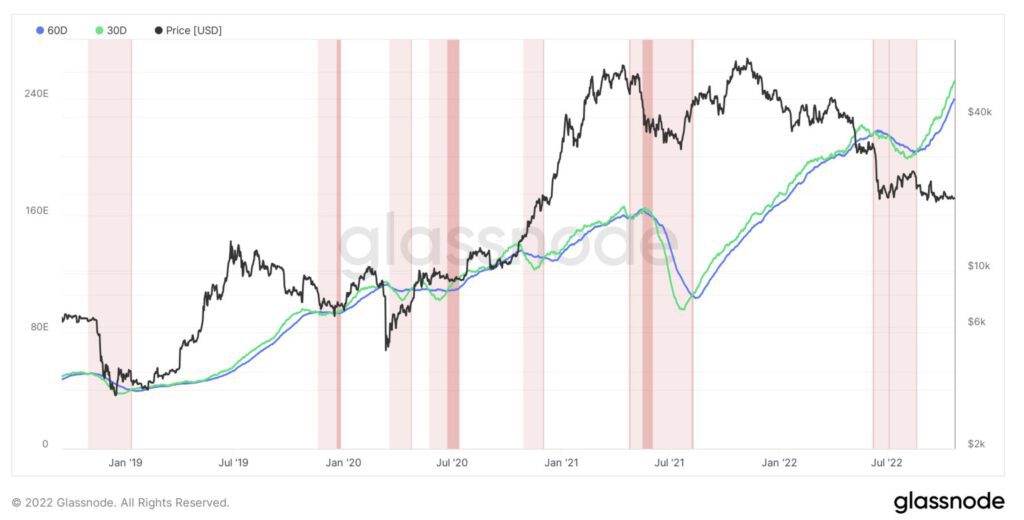The monetary policy of the Federal Reserve (FED) continues to be the all-determining factor for both the financial markets worldwide and Bitcoin. With this in mind, all eyes are currently on November 02, when the next Federal Open Market Committee (FOMC) meeting is scheduled.
However, while this is an external market risk, there is also an internal market risk currently developing that should not be underestimated from a historical perspective: a Bitcoin miner capitulation.
The lower Bitcoin falls and the longer the price stays at the current level, the more pressure is put on Bitcoin miners’ margins by a divergence of price and hash rate.
Bitcoin’s Mining Difficulty Reaches A New ATH
A look at the Bitcoin mining difficulty adjustment that took place yesterday shows that it increased again by 3.44%. This follows the historical adjustment of October 10, when the mining difficulty increased by 13.55%.
#Bitcoin mining difficulty has just increased by +3.44%, making another new all time high as hash rate continues to soar.
Miners are relentless. pic.twitter.com/4GEyHxYoZ8
— Dylan LeClair 🟠 (@DylanLeClair_) October 24, 2022
The difficulty is updated approximately every two weeks to account for the fluctuating hash power on the network and to ensure a minting of new Bitcoins approximately every 10 minutes (block time).
Yesterday’s adjustment is thus likely to put further pressure on already struggling miners who are seeing dwindling profits. Will Clemente, co-founder of Reflexivity Research, asserted that “miners are the biggest intra-Bitcoin market risk right now IMO”.
A compelling theory for the steady rise in the hash rate, he says, is that a well-funded player is trying to squeeze out inefficient miners and acquire their assets on the cheap, “Rockefeller-style”.
As a result, a miner capitulation could occur. During this event, the non-profitable miners would have to sell both their mining hardware and their holdings of Bitcoins. On a large scale, this could trigger a significant selling pressure on the Bitcoin price, as seen with past miner capitulations.
Clemente stated that the likelihood of a second miner capitulation after the first period in June is rising. The leading indicator to watch are the hash ribbons.
Clemente concluded:
Thinking about who this entity(s) is that feels that it’s advantageous to mine with BTC price down 70%, energy prices high, & hashprice at all-time lows. Wonder if its a large player(s) with excess energy or access to dirt-cheap energy. […] That’s why I’m so curious because this would have to be someone with extremely low energy costs. Haven’t seen any great answers thus far.
Big Name Bitcoin Miners In Trouble?
Dylan LeClair, senior analyst at UTXO Management and co-founder of 21stParadigm also noted that the hash price, or miner revenue per TeraHash, recently passed the 2020 all-time low. If history repeats from previous bear markets, the price decline has just begun, he said.
In addition, he revealed that he has heard “some juicy rumors flying around about some big name Bitcoin miners being in trouble here”.
The continued mounting pressure on Bitcoin miners can end in two scenarios, according to him. Either this is the bottom. “The lack of vol shows apathy from sellers. Extended consolidation/accumulation period,” LeClair stated.
However, the scenario considered more likely by the analyst is that BTC has currently reached a level like $6,000 in 2018/2019. If hash rate continues to soar, then the increasing pressure will result in a miner capitulation event.
At press time, the BTC price continued to lack volatility and lingered around $19,300.



